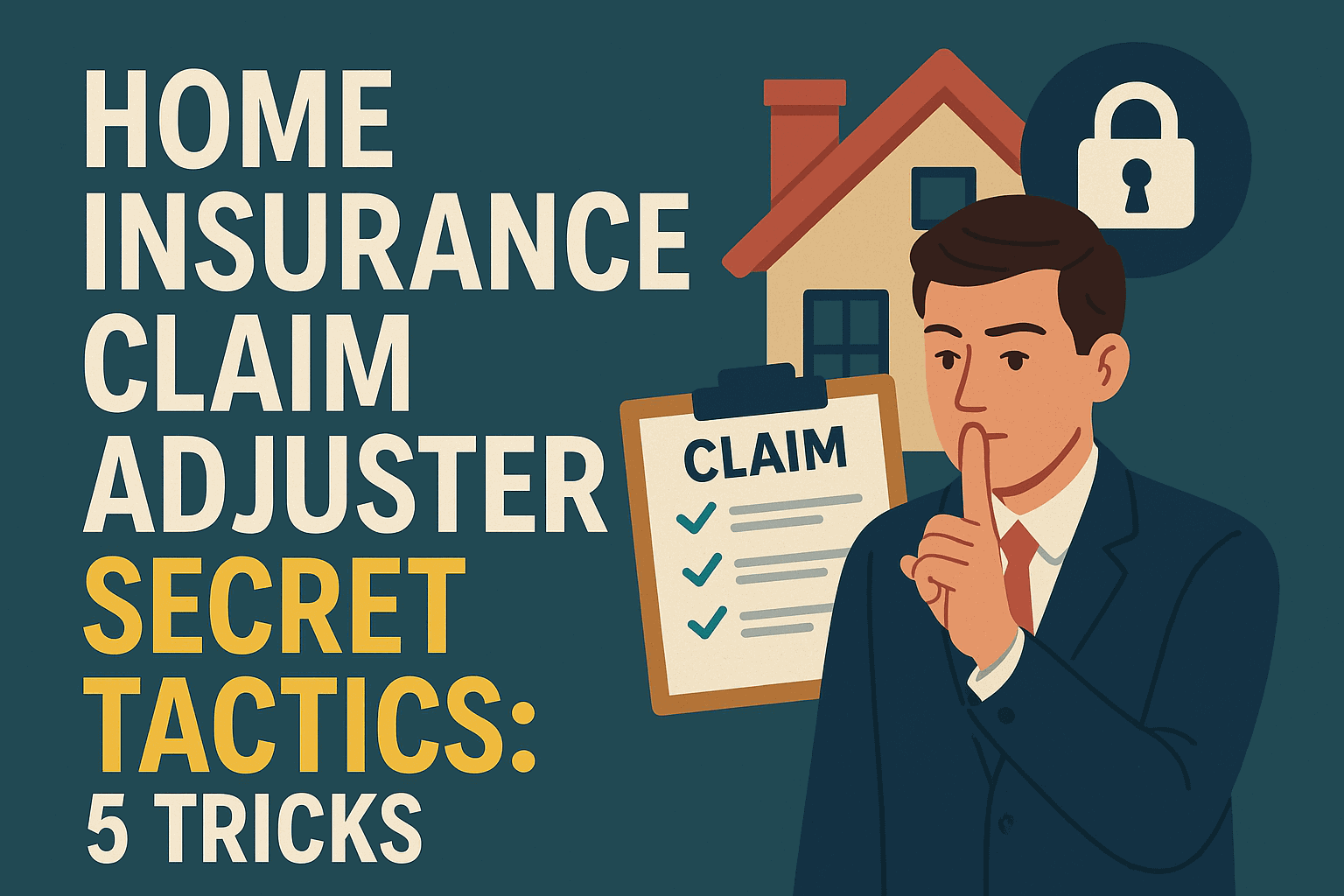education

July 19,2025 • 3 min read
Home Insurance Claim Adjuster Secret Tactics: 5 Tricks

Home Insurance Claims: 5 Secret Adjuster Tactics Uncovered
Navigating a home insurance claim can feel like a blindfolded walk through a maze—especially when facing seasoned adjusters trained to minimize payouts. While many act ethically, their objectives often clash with policyholders’ needs. This guide reveals five key tactics adjusters may use—and how to counter them effectively.
🎯 The Adjuster’s Objective
Insurance adjusters work for insurers. Their success is measured by how efficiently—and economically—they settle claims. Even independent adjusters are contracted by the company, while public adjusters are hired by the policyholder.
⚠️ Tactic #1: The “Friendly” Interrogation
Adjusters may build rapport to lower your guard—then use your words to reduce or deny coverage.
How It Works:
-
Leading questions about pre-existing damage
-
Encouraging speculation (“Maybe it was age-related?”)
-
Recording conversations—often without clear notice
-
Rushing statements before you understand full damage
How to Counter:
-
Stick to facts, avoid speculation
-
Review your policy before speaking
-
Document every interaction: date, time, adjuster name
-
Say “I don’t know” if unsure—don’t guess
-
Consider having a witness or public adjuster present
💸 Tactic #2: The Lowball Estimate
Adjusters use software and selective calculations to undercut your claim’s true value.
How It Works:
-
Outdated pricing or inflated depreciation
-
Excluding hidden damage like mold or structural issues
-
Omitting code upgrades covered by your policy
-
Depreciating items incorrectly
-
Proposing cheap repairs
-
Pressuring for “quick” settlement
How to Counter:
-
Get independent estimates from local contractors
-
Demand a line-by-line breakdown of their estimate
-
Highlight missing items or mismatched pricing
-
Hire experts to assess hidden damage
-
Understand your policy’s RCV vs. ACV terms
-
Don’t accept fast offers without full review
🕒 Tactic #3: Delay, Delay, Delay
Insurers know that frustration and financial strain can lead you to settle for less.
How It Works:
-
Ignoring calls/emails
-
Repeated requests for documents
-
Switching adjusters frequently
-
Blaming “missing paperwork”
How to Counter:
-
Track all communication
-
Set clear follow-up expectations
-
Escalate to supervisors if needed
-
File a complaint with your state’s insurance department if delays persist
🧾 Tactic #4: Misinterpreting Policy Language
Adjusters may “interpret” your policy to exclude claims—even if coverage exists.
How It Works:
-
Selectively quoting exclusions
-
Misdefining key terms like “flood” vs. “water damage”
-
Ignoring endorsements (e.g., code upgrade clauses)
How to Counter:
-
Read your full policy, not just summaries
-
Highlight relevant clauses yourself
-
If needed, hire a public adjuster or attorney to push back
⚖️ Tactic #5: Denial by Complexity
When things get too overwhelming, policyholders may give up.
Signs You Need Backup:
-
Denials or low payouts without justification
-
Communication breakdowns
-
Feeling overwhelmed by the claims process
Solutions:
-
Hire a public adjuster to fight for your rights
-
Bring in a lawyer if you suspect bad faith or contract violations
✅ Final Takeaway
Understanding these tactics transforms you from a vulnerable claimant into a strategic negotiator. Keep thorough records, seek expert opinions, and never rush a decision. Your home is your sanctuary—so make sure your insurance company treats it, and you, with the respect you deserve.
Esha Kamran Details
User Profile
- Full name
- Esha Kamran
- Email address
- eshakamran569@gmail.com
- Join Date
- 2025-07-19
- State
- City
- Pincode
- Address
- Follow us on Facebook
- Follow us on Twitter
- Website Name
- Bio